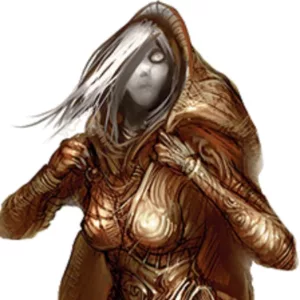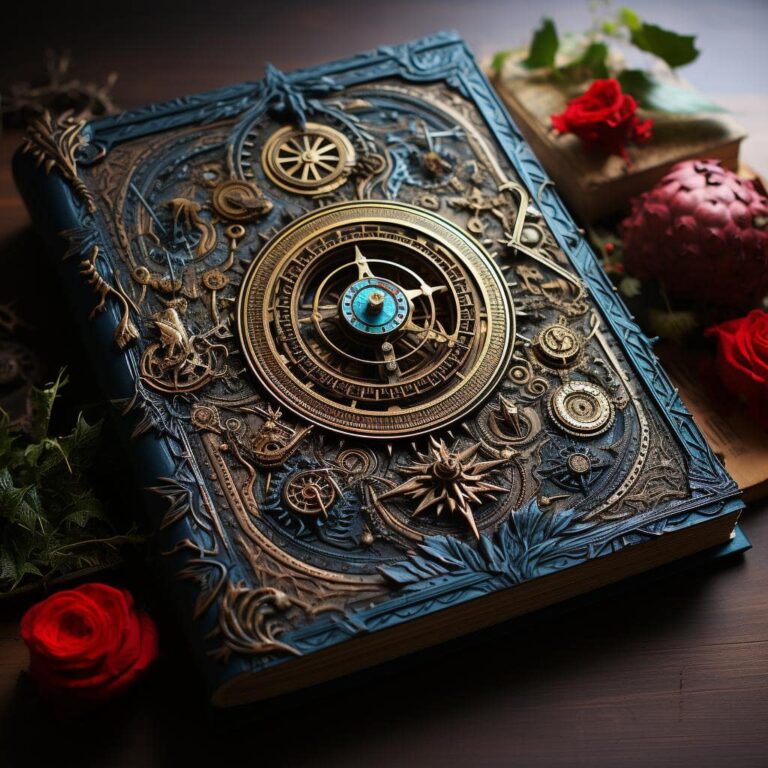
Ever come across a bookstore and stumbled upon a random book title that’s so interesting you can’t help but flip a few pages to read the plot? Then your mind struck gold! You fell for the nice plot and you can’t resist buying the book and adding it to your collection of unfinished book readings.
We’ve all been there and we’ve done that! Seemingly interesting book titles are good enough to catch our wandering eyes when we enter the bookstore. Sometimes we wonder, how interesting is ‘interesting’ that makes us fall in love with these titles and attracts us to read them—and buy them.
In this article, we’ll try to place our position in the lens of book authors to get a better understanding of how book names and titles are created. We’ll get to know a sneak preview of how book names were created during the old times. We’ll also venture into the world of title searching and understand how books can be found by simply searching for the plot or a piece of the title. Not only that, we’ll introduce to you some of the best tools you can use to generate book titles and bonus tips on how to write book titles in essays! That may be too much to take, but we’re sure you’ll have fun reading along so let’s get into it!
You read that right. Book names are like a form of art; a masterpiece! According to the Merriam-Webster dictionary, art is a “conscious use of skill and creative imagination to produce an aesthetic object”. The keyword here is “conscious”, which means that art is supposed to be intentional or objective, while not sacrificing creativity—thus the “creative”. Art does not limit itself to aesthetic objects like paintings, murals, or sculptures. Art is also involved in creating book names.
Good book titles are striking and easily reach out to the audience without even opening a single page. While it might sound like an exaggeration, book titles are what actually hook you to open books in the first place. Book names are the “first impression that lasts” in the eyes of the readers. It is the first level of opportunity to sell the book and convince someone to read it, whereas word of mouth and good or bad recommendations will come second only.
However, book titles are not easy to come up with, especially if you are new to the industry and are hoping to be a best bookseller one day. You might want to take a few steps back and consider some factors in creating a good book title. Don’t worry, we got your back and we summarized some for you.
Creating book names and book titles might range from being easy to difficult. There are a lot of factors involved and considerations to keep in mind which will be discussed one by one on the below steps.
Identify Your Book Content
The very first step in creating book names is to specify the main idea of your book. Your book title must be related to your book content. If it is informative, go straight to the point and find related keywords to use as titles. Titles such as “A Guide to Cats” or “Easy Guides, Easy Slides” will most likely give a neat idea that the book is about cats and slides, respectively. But if you are making book novels or fantasy books, try to grab proper nouns that are a “centerpiece” of the plot of your stories. It could be the name of the place where the events happened, the trials of the main character, or even the name of the character itself.
Go With the Basics
Perhaps the most basic book titles will start with “The” followed by the main idea of the story or book. For example, “The Little Prince” directly points out the main character and circulates the plot around him. “The Hunger Games”, on the other hand, directly identifies the novel to be retelling the story of the so-called Hunger Games. After you identify your book content (from step 1), try to simplify your book creation by creating subtle and basic book titles. Some other examples are The Witcher and The Lord of the Rings.
Add Subtitles
Subtitles work, especially for non-fiction book titles and scientific journals. Subtitles help cover a little abstract of the book to communicate to the readers what the book is all about. For example, the famous book of Ray Dalio, PRINCIPLES: Life and Work uses the subtitle “Life and Work” to give an overview that the “Principle” that the book is talking about is about personal life and career work.
Single-Worded Titles Work Too!
Sometimes, less is more. Some books only have a single-word title in them and do not even have subtitles to begin with. These books create a mystery and tweak the curiosity of the readers into opening them. Sounds like a clickbait? But yes, this kind of book title works wonders too for some authors. A few examples of single-worded titles are:
Know Your Market
This process is one of the stringent parts, but sometimes unnecessary especially for highly acclaimed authors. Knowing your market means knowing your readers. If you can target specific readers, such as specific gender, age, and class, you might be in the right place to climb on the hilltop to being a famous writer. Knowing your market allows you to focus the idea of the title on capturing specific people to read your book.
There may be other processes that were not discussed in this section. Those processes might be complicated and too unforgiving for beginners. In the meantime, these are all the basics that you need to come up with at least a good book title for your written work.

Historically speaking, books are an old thing to the human race. Going back to the time of ancient Egypt, Greeks, Phoenicians, and Mayans, books were already being written either on walls or on paper. But book titles were not as prolific as it was compared to the medieval times. In the medieval era, books served at least three purposes: to keep and store knowledge; to create forms of readable entertainment; and to preserve legacies or autobiographies (such as those of kings and queens).
Medieval Literature is mostly written between the early 1st to 15th centuries. These kinds of literature include ideas of philosophy, science, religion, laws, and of course mythologies. Forms of entertainment are abundant during the late medieval ages. Some books compile an assortment of poetic prose, epic romance, and drama such as the Legend of King Arthur and the fairy tale of Hansel and Gretel from the Baltic in the early 14th century. However, not all published books during this time were actual books. Some are only manuscript titles, short letters, journal titles, and short stories. This means that book titles are limited to the intention of the book, whilst they are not crafted in an artistic way to attract an audience. However, the creation of short stories and legends became a good starting point for modern authors to create good medieval book names in the centuries to come.
Fast forward to the late medieval ages, legends, folklore, and fairy tales are widespread. These stories were often passed on by word of mouth before evolving into actual literature from authors. In the 15th century, printing presses were now available for book production. Publication is a beaming business as well as newsletters and opinion journals. By this time, books are also starting to take the spotlight. Books were bought often by middle and upper-class people as a form of personal entertainment. The available books retell the old stories and legends that sprung from the past years of the medieval ages. These medieval stories became a source of fictional stories that changed the way writers wrote. In the following years to come, writers started to compete with one another and started to create more charming book titles to attract readers and gain more audience. Stories from medieval periods including knights, kings, princesses, chivalry, and dragons are common book novel subjects. One of the famous stories of the late 6th century, Beowulf is also an inspiration to some authors in writing stories about elves, dwarves, and men.
Even in the present time, good medieval book names exist and are inspired by the medieval ages. Below are a few examples of medieval-inspired books that we know you have heard before.
Sometimes not all authors have the leisure or time to think of actual book titles. Thankfully some useful tools are available over the internet that authors and writers can use in creating book titles. A Title Generator for Books is an automated book title tool that suggests good book titles that may help inspire authors to create relevant titles. These title generators include tens of thousands of combinations of great book titles that are unique, unused, and free. On top of that, different online book title generator can provide other name ideas in case you want to consult more name suggestions.
Book Title Generators are great for authors who want to start writing new novels from scratch. Instead of forming the plot story itself, they can start from a good book title and create a story out of it. Besides, a good story is sometimes inspired by great book titles. Remember that good book titles are as important as the main storyline and will serve as a first impression to your readers.
What’s even more interesting to know are the stories that you probably heard of but can’t seem to remember where you heard it—or read it? Thankfully, we have good artificial intelligence and nice search engines that can help us find book titles depending on the plot you remember. In this section, we’ll tell you some of the smart ways you can easily find book titles by simply stating the plot. Let’s learn!
Google search engine is one of the smartest and most advanced search engines to exist today. It is run by a Google AI that manages all the links and texts uploaded over the internet. The AI can scan through millions of articles and documents depending on the keywords that you entered on the search bar.
The way Google Search works is quite simple, it accepts related keywords from your search bar, scans for possible matching words, and then flashes them on your web browser. It is up to you to decide though if Google produced the right webpage for you. When it comes to book titles, you can simply key in words like “medieval book titles about wizards” and then Google will display possible matching answers for your search query.
Adding more keywords might also help with your search. You can type phrases like “book title about two adventurers who bear a ring of power to defeat a Dark Lord” and be surprised that you are already a step ahead on what book title you are searching for.
After you key in some titles, try to click the “Images” node of the Google search. You might be surprised that the cover page of the book you’re looking for might be there… assuming you remember how it looks and not its title.
The much slower but more accurate way to search for book titles is by consulting other book nerds across the planet. That’s right, join an awesome forum website such as Reddit or Quora. There are a lot of helpful people out there who might have read the plot you describe and will give the exact title to you.
But beware, though! Trolling and toxicity might exist in the comment sections of your post, so be mindful and do not take all their words personally. Focus on the title you are searching for and close your inquiry after. Happy searching!
One of the basic testing grounds if you can create a good book is by creating an essay. An Essay is an analytic or interpretative literary composition that is much shorter than a formal book. It usually covers a single or specific topic and dwells on it in more detail and attention. Essays are also intended to inform, to influence, and to give perspectives. Some creative writers may also use essays to entertain readers while persuading and influencing them at the same time.
While creating your essays, some of the ideas and concepts you are sharing might have come from famous books you’ve read or awesome articles you viewed. You must emphasize the sources of that information, especially those ideas that were not originally yours. This gives more credibility to your work, and at the same time, gives credit to the authors you admire. Below are the proper ways to include and write book titles in an essay.
When inserting titles of books within your essay, you should either put an underline beneath the exact title of the book or transform the texts of the book title into italics. This rule emphasizes that the underlined or italicized titles are book titles, nothing else.
Quotation marks are used differently in essays. You do not use quotation marks to emphasize book titles. Instead, use quotation marks to emphasize story titles, other essays, and poems. Since these categories for the use of quotation marks are different from one another, it is also important that you specifically identify each quoted text if they are from a novel, a short story, an essay, a poem, etc.
The APA style indicates that the author’s name must be placed after the underlined or italicized book title and enclosed in parenthesis. The last name of the author comes first, and their given names are often initials but not required. The surname of the author is followed by a comma and the year when it was published. If there are two authors, indicate both their last names divided by the ampersand symbol “&” or by the word “and”. If there are three or more authors, use “et al”.
Example:
The Lord of the Rings: The Fellowship of the Ring (Tolkien, 1954)
The Lord of the Rings: The Fellowship of the Ring (Tolkien, J.R.R, 1954)
Example 2: If there are two authors.
The Story of Neglect (Brant & Mosley, 1997)
Example 3: If there are more than two authors.
The Biology of the World (Buenavente et al., 2016)
APA Style is a bit more formal and sometimes disrupts the continuity of your essay writing. The Chicago Style citation allows writers to comfortably write the essay and cite book titles easily. In a Chicago style, you enclose the entire title of the book inside a quotation mark and end the title with a comma. This is then immediately followed by the author’s name after the word “by”. The first name or name initial comes first before the surname.
Example: “The Amazing Spiderman,” by Stan Lee
Whether you are using APA or Chicago style, writing book titles inside an essay strictly follows certain but simple rules. Below are the strict rules that you should abide by to create a successful citation of book titles inside your essays.
Upon reading this article, you were able to know that good book titles are created in a meticulous, yet creative way. Creating book titles is a form of art, too! You were also able to learn the basic process of book title creation and understand the influences of the medieval era on our present-day book names.
On top of that, you were introduced to the amazing book title generator tool that speeds up your book name creation. Lastly, we were able to share with you how to find a book title by searching for the plot and how to write a book title inside an essay. We know you had fun too, and hopefully, you visit our site again if you want to recall the best book title and naming guide.
